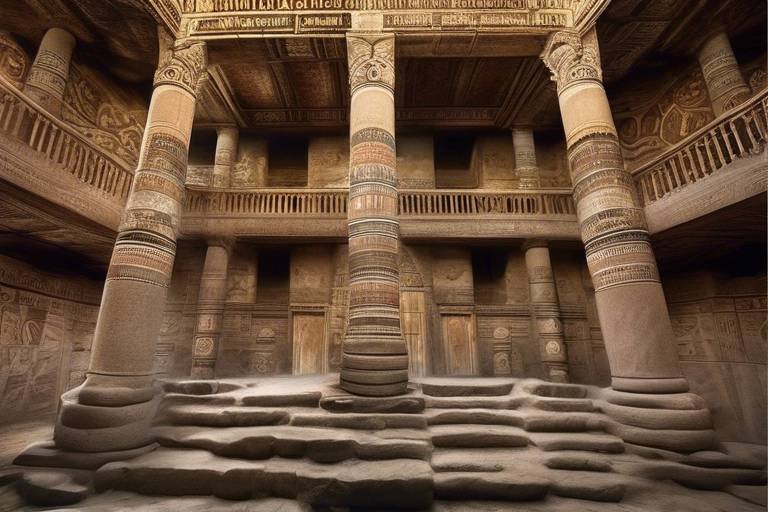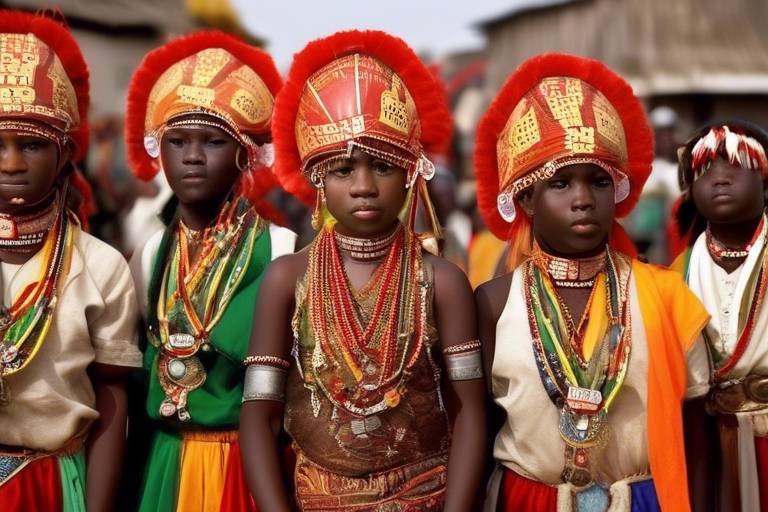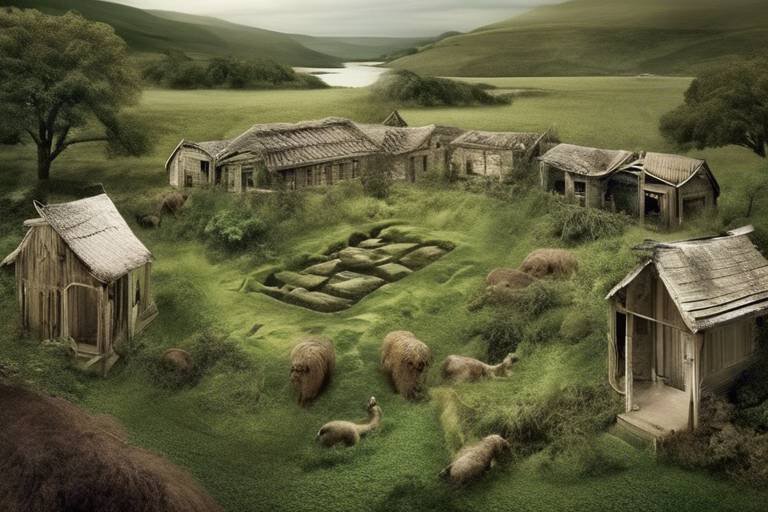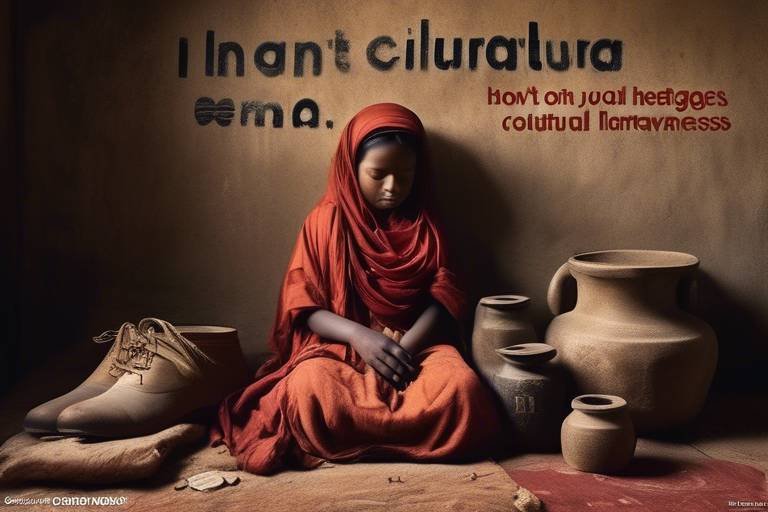The Role of International Organizations in Heritage Advocacy
International organizations play a crucial role in advocating for the preservation, protection, and promotion of cultural heritage on a global scale. These organizations work tirelessly to safeguard our shared heritage, ensuring that future generations can appreciate and learn from the richness of our past. By collaborating with governments, local communities, and experts in the field, these organizations contribute significantly to heritage advocacy efforts worldwide.
One of the key players in heritage advocacy is the United Nations Educational, Scientific and Cultural Organization (UNESCO). UNESCO's World Heritage Centre stands at the forefront of identifying, safeguarding, and promoting cultural and natural heritage sites of outstanding universal value. Through the 1972 World Heritage Convention, UNESCO fosters international cooperation for heritage conservation, emphasizing the importance of protecting these sites for the benefit of all humanity.
Another influential organization in heritage advocacy is the International Council on Monuments and Sites (ICOMOS), which focuses on promoting the conservation, protection, and enhancement of monuments and sites worldwide. By providing expert advice, advocacy, and capacity building initiatives, ICOMOS plays a vital role in ensuring the preservation of our cultural heritage for future generations.
The International Centre for the Study of the Preservation and Restoration of Cultural Property (ICCROM) also contributes significantly to heritage advocacy through its research, training, and technical assistance programs. By enhancing the conservation and management of cultural heritage globally, ICCROM plays a crucial role in safeguarding our shared heritage for the benefit of present and future societies.
Furthermore, organizations like the International Alliance for the Protection of Heritage in Conflict Areas (ALIPH) focus on safeguarding cultural heritage in regions affected by conflict. By providing emergency response, funding, and expertise, ALIPH works to protect at-risk heritage sites and collections, ensuring that the devastating impact of conflict on cultural heritage is minimized.
Additionally, the World Monuments Fund (WMF) undertakes conservation projects and advocacy efforts to safeguard endangered cultural heritage sites globally. By raising awareness about the importance of preserving our shared heritage, WMF plays a crucial role in ensuring that these sites are protected and accessible to future generations.
Moreover, the International Federation of Library Associations and Institutions (IFLA) advocates for the preservation and access to cultural heritage materials held in libraries worldwide. By promoting best practices in heritage documentation and conservation, IFLA contributes to the safeguarding of valuable cultural resources for present and future generations.
Lastly, the International Centre for Underwater Archaeology (ICUA) focuses on researching, protecting, and promoting underwater cultural heritage globally. Through innovative technologies and collaboration, ICUA works to preserve submerged archaeological sites and artifacts, shedding light on our maritime past and the importance of protecting these valuable resources.

UNESCO's World Heritage Centre
UNESCO's World Heritage Centre plays a crucial role in the preservation and promotion of cultural and natural heritage sites of exceptional value worldwide. Established in 1972, UNESCO's World Heritage Convention aims to identify and safeguard sites that represent the diversity of our planet's heritage. Through a collaborative approach involving member states, experts, and local communities, UNESCO works to ensure the protection and sustainable management of these iconic landmarks for future generations to appreciate and enjoy.
One of the key functions of UNESCO's World Heritage Centre is to inscribe sites on the World Heritage List, which currently includes over 1,100 properties across the globe. These sites are recognized for their outstanding universal value and are considered to be of exceptional importance to humanity. By raising awareness about the significance of these sites, UNESCO helps to foster a sense of pride and responsibility for their preservation among nations and individuals alike.
Moreover, UNESCO's World Heritage Centre provides technical assistance and capacity-building support to countries in need of expertise in heritage conservation. Through training programs, research initiatives, and the dissemination of best practices, UNESCO empowers local communities and authorities to effectively manage and protect their cultural and natural heritage assets.
Furthermore, UNESCO's World Heritage Centre plays a vital role in promoting international cooperation and dialogue on heritage conservation issues. By facilitating partnerships between countries, organizations, and experts, UNESCO fosters a shared commitment to preserving our common heritage for the benefit of present and future generations. Through initiatives such as the World Heritage Education Program, UNESCO also seeks to engage young people in heritage conservation efforts and raise awareness about the importance of safeguarding our cultural legacy.
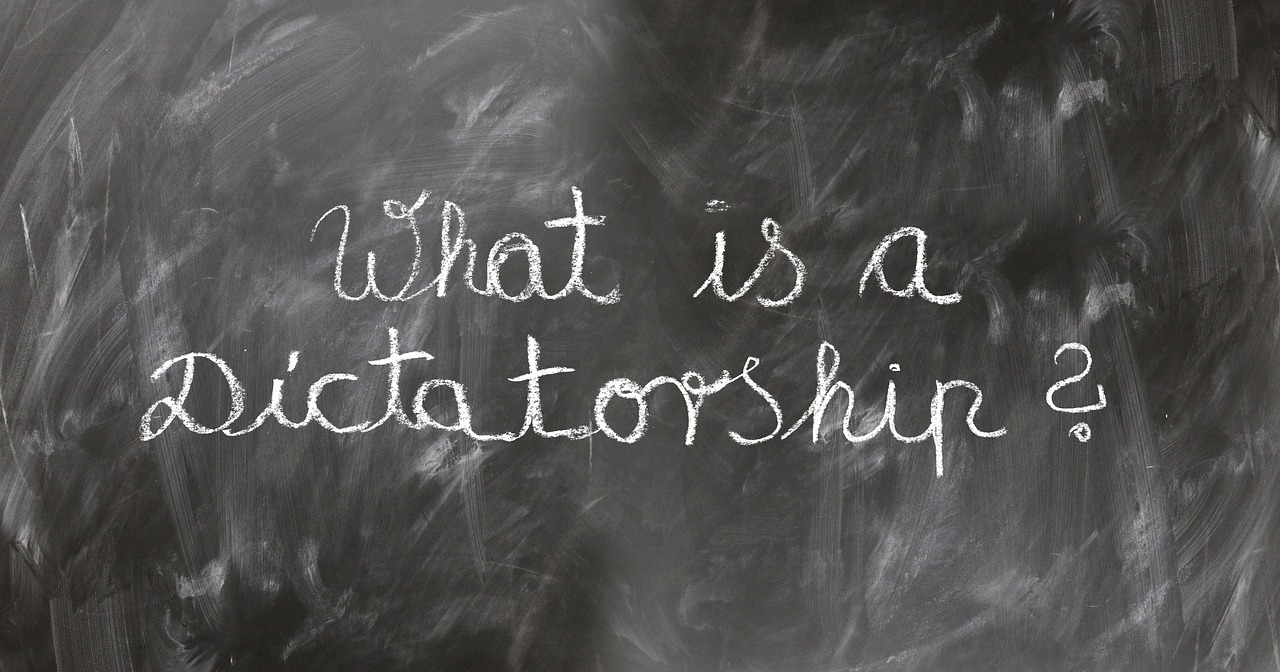
International Council on Monuments and Sites (ICOMOS)
The International Council on Monuments and Sites (ICOMOS) plays a crucial role in the preservation and promotion of cultural heritage sites worldwide. Established in 1965, ICOMOS is a global non-governmental organization dedicated to the conservation, protection, and enhancement of monuments and sites of historical and cultural significance. Through its network of experts and professionals in the field of heritage conservation, ICOMOS works to raise awareness about the importance of preserving our shared cultural heritage for future generations.
One of the primary missions of ICOMOS is to provide expert advice and guidance on the conservation and management of heritage sites. By conducting research, developing guidelines, and offering training programs, ICOMOS contributes to the capacity building of professionals involved in heritage conservation efforts. The organization also works closely with governments, local communities, and other stakeholders to promote sustainable practices that ensure the long-term preservation of cultural heritage.
ICOMOS actively participates in the evaluation of sites nominated for inclusion on the UNESCO World Heritage List. Through its evaluation missions and expert reviews, ICOMOS assesses the cultural and historical significance of potential World Heritage sites, helping to identify and safeguard places of outstanding universal value. By advocating for the protection of heritage sites, ICOMOS plays a vital role in ensuring that these sites are preserved for future generations to appreciate and enjoy.

International Centre for the Study of the Preservation and Restoration of Cultural Property (ICCROM)
The International Centre for the Study of the Preservation and Restoration of Cultural Property (ICCROM) plays a crucial role in enhancing the conservation and management of cultural heritage on a global scale. Established in 1959, ICCROM is an intergovernmental organization dedicated to safeguarding cultural heritage through research, training, and technical assistance programs. By collaborating with various stakeholders, including governments, institutions, and local communities, ICCROM strives to ensure the preservation of cultural property for future generations.
ICCROM's mission encompasses a wide range of activities aimed at promoting best practices in heritage conservation. Through capacity building initiatives, the organization provides training opportunities for heritage professionals to enhance their skills and knowledge in preserving cultural artifacts, monuments, and sites. By conducting research and developing innovative conservation techniques, ICCROM contributes to the advancement of heritage preservation practices worldwide.
Moreover, ICCROM works closely with UNESCO and other international organizations to address challenges related to the protection and restoration of cultural property. By sharing expertise and resources, ICCROM fosters collaboration among heritage professionals and facilitates the exchange of information and best practices in the field of cultural heritage conservation.
One of ICCROM's key priorities is to promote the sustainable management of cultural heritage sites, taking into account the social, economic, and environmental aspects of conservation. By advocating for the integration of heritage preservation into sustainable development agendas, ICCROM seeks to ensure the long-term viability of cultural heritage assets and their contribution to the well-being of communities around the world.
Overall, ICCROM plays a vital role in advancing the field of cultural heritage conservation through its research, training, and advocacy efforts. By promoting the importance of preserving and restoring cultural property, ICCROM contributes to the safeguarding of our shared heritage for present and future generations to enjoy.
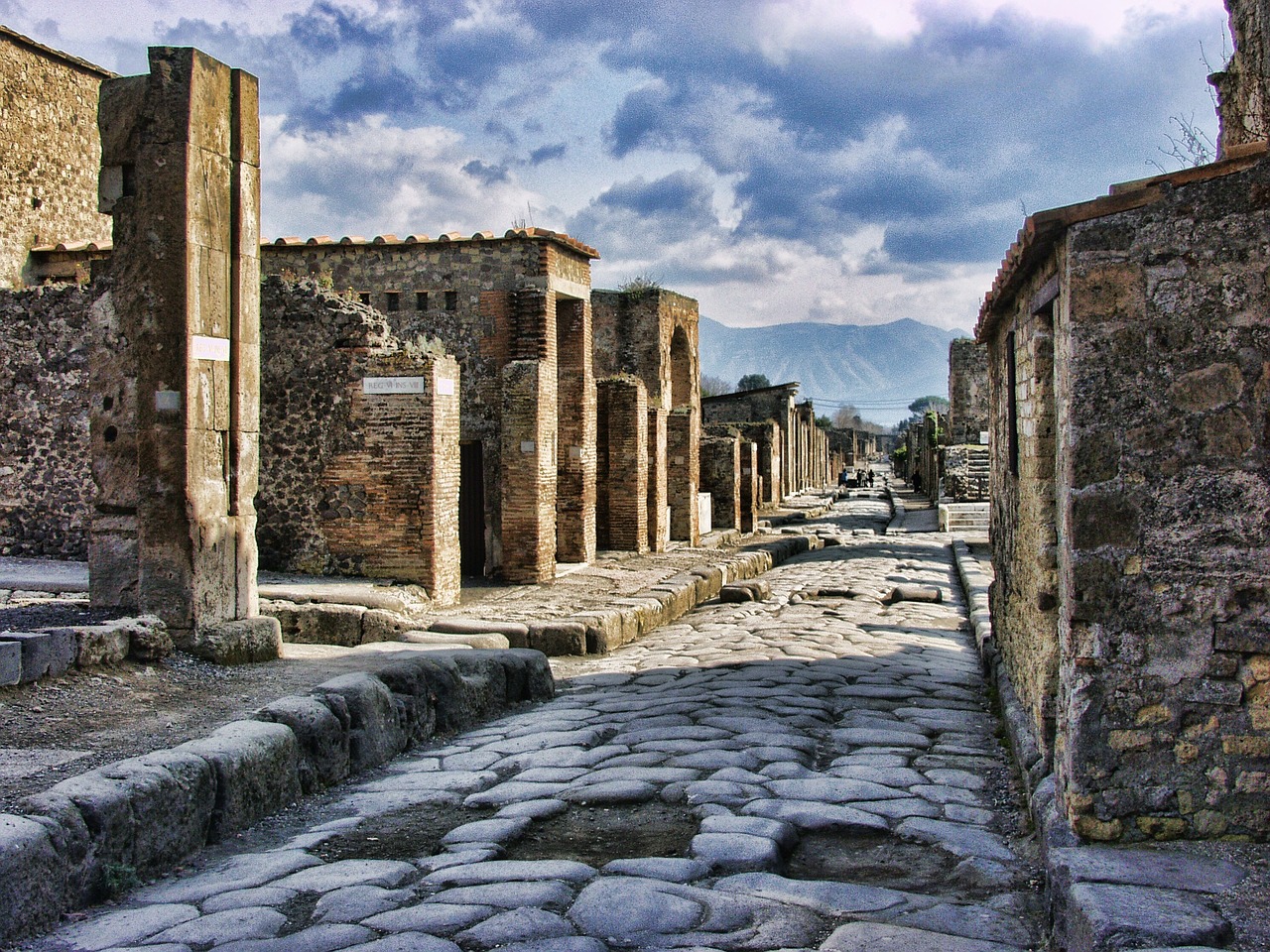
United Nations Educational, Scientific and Cultural Organization (UNESCO)
United Nations Educational, Scientific and Cultural Organization (UNESCO) plays a crucial role in the preservation and promotion of cultural heritage on a global scale. Established in 1945, UNESCO is known for its comprehensive efforts in safeguarding cultural and natural sites of outstanding value. One of UNESCO's landmark initiatives is the 1972 World Heritage Convention, which aims to identify and protect sites of exceptional cultural and natural significance. Through this convention, UNESCO works closely with member states to ensure the conservation and sustainable management of these heritage sites for future generations.
Besides the World Heritage Convention, UNESCO carries out a wide range of activities to support cultural heritage preservation. These include educational programs, capacity-building initiatives, and advocacy campaigns to raise awareness about the importance of safeguarding our shared heritage. By collaborating with governments, local communities, and other stakeholders, UNESCO strives to protect cultural diversity and promote intercultural dialogue through heritage preservation.
UNESCO's work in cultural heritage extends beyond site conservation to encompass intangible cultural heritage, such as traditional practices, rituals, and languages. Through programs like the Intangible Cultural Heritage List, UNESCO recognizes and safeguards living heritage practices that are at risk of disappearing. By documenting and promoting these intangible forms of heritage, UNESCO contributes to the resilience and vitality of diverse cultural expressions around the world.

International Alliance for the Protection of Heritage in Conflict Areas (ALIPH)
The International Alliance for the Protection of Heritage in Conflict Areas (ALIPH) plays a crucial role in safeguarding cultural heritage in regions affected by conflict and crisis. ALIPH focuses on providing rapid response and support to protect heritage sites and collections at risk of destruction, looting, or damage during times of conflict. By mobilizing resources, expertise, and funding, ALIPH works to preserve the cultural identity and history of communities facing threats to their heritage.

International Federation of Library Associations and Institutions (IFLA)
The International Federation of Library Associations and Institutions (IFLA) plays a crucial role in advocating for the preservation and access to cultural heritage materials housed in libraries around the world. With a focus on promoting best practices in heritage documentation and conservation, IFLA works tirelessly to ensure that these valuable resources are safeguarded for future generations to explore and learn from.
Through its global network of library professionals and institutions, IFLA facilitates collaboration and knowledge sharing to enhance the protection of cultural heritage materials. By advocating for the importance of preserving these resources, IFLA raises awareness about the significance of libraries as custodians of our shared cultural heritage.
IFLA's initiatives extend beyond conservation efforts to encompass the promotion of access to cultural heritage materials. By developing guidelines and standards for the management and digitization of heritage collections, IFLA empowers libraries to make these resources more widely available to researchers, scholars, and the general public.
Furthermore, IFLA actively engages with policymakers and stakeholders to advocate for policies that support the preservation and accessibility of cultural heritage materials in libraries. By participating in international forums and conferences, IFLA amplifies the voice of the library community in discussions on heritage conservation and promotes the value of libraries as vital cultural institutions.
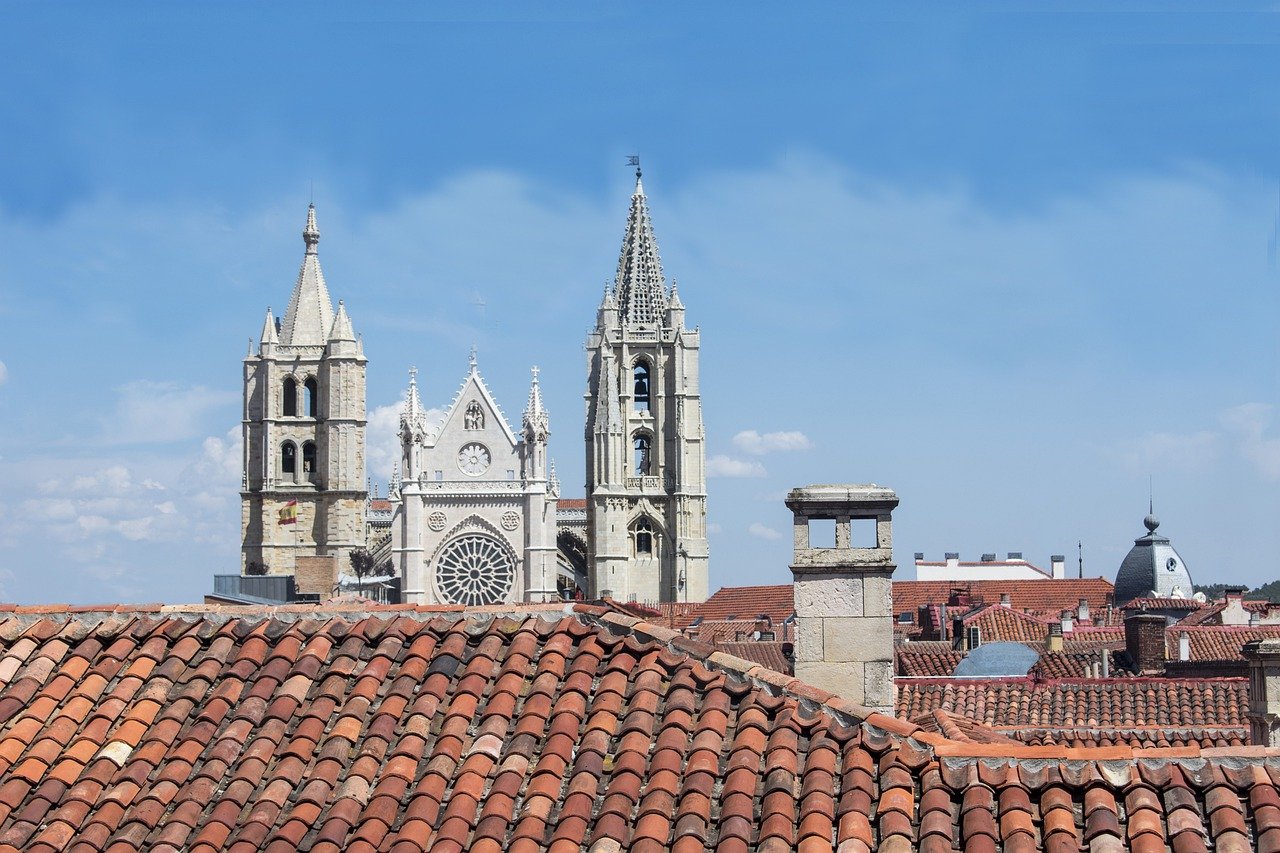
World Monuments Fund (WMF)
The World Monuments Fund (WMF) is a renowned organization dedicated to the preservation and protection of endangered cultural heritage sites around the world. Through its conservation projects and advocacy efforts, WMF plays a crucial role in safeguarding these sites for future generations. By raising awareness about the significance of preserving our shared heritage, WMF strives to ensure that these cultural landmarks remain intact and accessible to all.
One of the key initiatives of the World Monuments Fund is to identify and prioritize at-risk heritage sites that are facing various threats such as neglect, natural disasters, urban development, or armed conflict. By conducting thorough assessments and collaborating with local communities and experts, WMF develops comprehensive conservation plans tailored to each site's specific needs.
WMF's conservation projects often involve a combination of research, documentation, restoration, and capacity-building efforts aimed at enhancing the long-term sustainability of these heritage sites. Through partnerships with governments, institutions, and donors, WMF secures the necessary resources and expertise to carry out these complex preservation projects successfully.
Furthermore, the World Monuments Fund actively engages in advocacy campaigns to promote the importance of cultural heritage preservation on a global scale. By highlighting the cultural, historical, and social significance of these sites, WMF advocates for policies and practices that prioritize the protection and conservation of our shared heritage.
In addition to its conservation work, WMF also focuses on education and outreach initiatives to raise public awareness about the value of cultural heritage and the threats it faces. By organizing events, exhibitions, and educational programs, WMF aims to foster a greater appreciation for the diversity and richness of our global heritage and inspire future generations to become stewards of these invaluable assets.

International Centre for Underwater Archaeology (ICUA)
The International Centre for Underwater Archaeology (ICUA) plays a crucial role in the research, protection, and promotion of underwater cultural heritage on a global scale. By utilizing innovative technologies and fostering collaboration among experts, ICUA aims to preserve submerged archaeological sites and artifacts, shedding light on our shared maritime history.
Through its specialized programs and projects, ICUA conducts underwater excavations, surveys, and documentation to uncover and safeguard valuable cultural assets hidden beneath the seas. By combining archaeological expertise with advanced diving techniques, the center explores ancient shipwrecks, submerged settlements, and other underwater treasures, enriching our understanding of past civilizations.
Furthermore, ICUA emphasizes the importance of responsible conservation and sustainable management of underwater heritage sites, advocating for their protection against looting, environmental threats, and commercial exploitation. By raising awareness about the significance of preserving underwater cultural resources, ICUA contributes to the cultural enrichment and historical legacy of humanity.
Frequently Asked Questions
- What is the role of international organizations in heritage advocacy?
International organizations play a crucial role in the preservation, protection, and promotion of cultural heritage worldwide. They work to identify, safeguard, and promote cultural and natural heritage sites of outstanding universal value, foster international cooperation for heritage conservation, provide expert advice, capacity building initiatives, and emergency response in conflict zones.
- How does UNESCO contribute to heritage preservation?
UNESCO, through its World Heritage Centre, leads efforts to safeguard and promote cultural and natural heritage sites globally. It implements the 1972 World Heritage Convention, supports educational programs, and advocates for the importance of heritage preservation. Additionally, UNESCO collaborates with other international organizations to enhance conservation practices and raise awareness about the significance of our shared heritage.
- What is the focus of ALIPH in heritage advocacy?
The International Alliance for the Protection of Heritage in Conflict Areas (ALIPH) focuses on safeguarding cultural heritage in regions affected by conflict. ALIPH provides funding, expertise, and emergency response to protect at-risk heritage sites and collections, emphasizing the importance of preserving cultural heritage even in challenging circumstances.
- How does ICOMOS contribute to monument conservation?
The International Council on Monuments and Sites (ICOMOS) plays a vital role in promoting the conservation, protection, and enhancement of monuments and sites worldwide. Through advocacy, expert advice, and capacity building initiatives, ICOMOS works to ensure the sustainable management of heritage sites and the transmission of cultural values to future generations.
- What is the significance of the World Monuments Fund (WMF) in heritage preservation?
The World Monuments Fund (WMF) undertakes conservation projects and advocacy efforts to safeguard endangered cultural heritage sites globally. By raising awareness about the importance of preserving our shared heritage for future generations, WMF contributes to the sustainable management and protection of culturally significant landmarks and artifacts.




